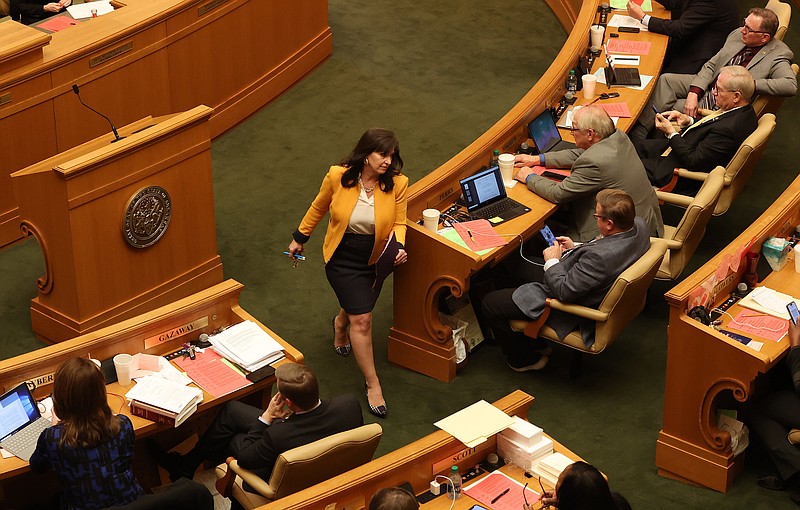A bill that aims to require pornography websites to verify Arkansas users are at least 18 years old passed the House on Tuesday.
Senate Bill 66, by Sen. Tyler Dees, R-Siloam Springs, received a vote in the House of 77-4 with 14 members voting present. The measure returns to the Senate for concurrence on amendments.
House sponsor Rep. Mindy McAlindon, R-Centerton, said the bill is needed to protect children from pornography. While she said parents should monitor their children's online activity, she contended lawmakers were responsible for setting guardrails to limit minors' exposure to pornography.
The bill would require commercial entities to use a reasonable age verification method before allowing users to access a website where more than a third of the material is deemed "harmful to minors."
Verification methods allowed under the bill include digitized ID cards, a government-issued ID or any commercially-reasonable age verification method "that holds an Identity Assurance Level 2."
Rep. Stephen Meeks, R-Greenbrier, said that while he appreciated the intent of the bill, he was concerned it could lead to identity theft. He also noted that if enacted the state law would not apply to businesses located outside of the state.
McAlindon said other online services could leave users vulnerable to identity theft. She noted the bill would allow users to present a form of ID other than a driver's license.
The bill contains a section that would bar commercial entities or third-party vendors from retaining any identifying information used to verify the age of the user.
Under the bill, material that is harmful to minors is defined as any "material that the average person, applying contemporary community standards, would find, taking the material as a whole and with respect to minors, is designed to appeal to, or is designed to pander to, prurient interest."
The legislation specifically points to "descriptions of actual, simulated, or animated displays or depictions of ... nipple of the female breast, pubic hair, anus, vulva, or genitals; touching, caressing, or fondling of nipples, breasts, buttocks, the anus, or genitals; or sexual intercourse, masturbation, sodomy, bestiality, oral copulation, flagellation, excretory functions, exhibitions of sexual act, or any other sexual act."
The bill also would apply to material that as a whole lacks serious "literary, artistic, political, and scientific value for minors."
